A message from Clare Dean (thanks, Clare!), one of our postgraduate researchers, about a recent workshop that she attended along with some of her colleagues, with a focus on developing science-related business skills.
“Post graduate researchers from the School of Applied Sciences recently attended an ‘Environment YES!’ workshop in Oxfordshire. Environment YES! and Biotechnology YES! are NERC and BBSRC funded initiatives to teach early career scientists how to transfer research and innovation into viable business ventures. Attendees at these workshops listen to presentations from professionals who have made the leap from science into business, learning about everything from marketing to financial planning. See: http://www.nerc.ac.uk/using/schemes/yes/
Over the course of the workshop, teams from each attending university developed a business plan for a hypothetical product which had to be based on plausible science. At the end of the workshop each team was given the opportunity to present their business plan to board of mock venture capitalists, in a ‘Dragon’s Den’ style pitch. Based on these pitches, two teams were chosen to compete in a final to select the best business plan. Bournemouth University team created Ωmega Worms Ltd. a company who has developed a novel rearing technique for mealworms which induce them to synthesise omega 3. The business plan was to sell these mealworms as an omega 3 supplement to manufacturers of aquaculture feed, reducing the manufacturer’s reliance on oily fish as a feed ingredient, and thus their connection with unstable wild fish stocks.
The five members of the Bournemouth University team were Justine Cordingley, Clare Dean, Sui Chian Phang, Natalia Tejador and Kathryn Ross. All team members felt that Environment YES! was an extremely valuable learning experience.
“With so much national focus on business and the economy it was a really useful exercise in thinking about how our research can be both profitable and solve environmental problems.” – Justine Cordingley
“This was an excellent experience which allowed us to strengthen a range of skills such as team work, time management, communication and presentation skills. Also it gave us the chance to learn about setting up a company and patenting products. It was enlightening!” – Natalia Tejedor
Environment YES! And Biotechnology YES! run every year and are open to PhD and post doc researchers working in biological sciences. This year’s Bournemouth team would thoroughly recommend that members of the Applied Science community get involved in future workshops”.
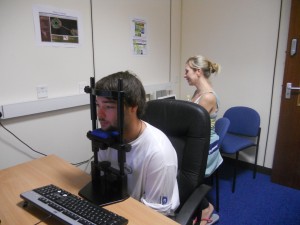 Prosopagnosia – or ‘face blindness’ – is a little known condition affecting 1 in 50 people. As Bournemouth University psychology lecturer Dr Sarah Bate explains, it is ‘literally a loss of memory for faces’.
Prosopagnosia – or ‘face blindness’ – is a little known condition affecting 1 in 50 people. As Bournemouth University psychology lecturer Dr Sarah Bate explains, it is ‘literally a loss of memory for faces’.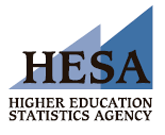 Then we want to hear from you! 🙂
Then we want to hear from you! 🙂 Then come to our free Open Access event this Wednesday in the EBC!
Then come to our free Open Access event this Wednesday in the EBC!




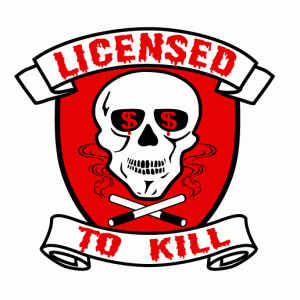
 Congratulations to BU’s
Congratulations to BU’s 

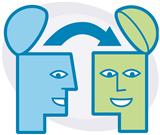
 Seminar groups are multi-institutional groups of academic researchers, postgraduate students and non-academic users who meet regularly to exchange information and ideas with the aim of advancing research within their fields. Where appropriate, seminar group members should be drawn from the public sector, commercial private sector, third sector and other relevant organisations as well as from academic institutions. We would particularly encourage seminar groups designed to bring together leading researchers from across disciplines to identify new research agendas or capacity building priorities. These grants are non-fEC and are limited to £15,000. This covers:
Seminar groups are multi-institutional groups of academic researchers, postgraduate students and non-academic users who meet regularly to exchange information and ideas with the aim of advancing research within their fields. Where appropriate, seminar group members should be drawn from the public sector, commercial private sector, third sector and other relevant organisations as well as from academic institutions. We would particularly encourage seminar groups designed to bring together leading researchers from across disciplines to identify new research agendas or capacity building priorities. These grants are non-fEC and are limited to £15,000. This covers: Following the announcement by the Vice Chancellor in August 2011 that CRE would move from Finance & Commercial Services I am delighted today to formally launch the Research & Knowledge Exchange Office (R&KEO) with the remit of supporting all research and knowledge exchange (formally enterprise) activity at BU.
Following the announcement by the Vice Chancellor in August 2011 that CRE would move from Finance & Commercial Services I am delighted today to formally launch the Research & Knowledge Exchange Office (R&KEO) with the remit of supporting all research and knowledge exchange (formally enterprise) activity at BU.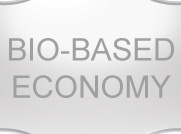











 SPROUT: From Sustainable Research to Sustainable Research Lives
SPROUT: From Sustainable Research to Sustainable Research Lives BRIAN upgrade and new look
BRIAN upgrade and new look Seeing the fruits of your labour in Bangladesh
Seeing the fruits of your labour in Bangladesh Exploring Embodied Research: Body Map Storytelling Workshop & Research Seminar
Exploring Embodied Research: Body Map Storytelling Workshop & Research Seminar Marking a Milestone: The Swash Channel Wreck Book Launch
Marking a Milestone: The Swash Channel Wreck Book Launch ECR Funding Open Call: Research Culture & Community Grant – Application Deadline Friday 12 December
ECR Funding Open Call: Research Culture & Community Grant – Application Deadline Friday 12 December MSCA Postdoctoral Fellowships 2025 Call
MSCA Postdoctoral Fellowships 2025 Call ERC Advanced Grant 2025 Webinar
ERC Advanced Grant 2025 Webinar Update on UKRO services
Update on UKRO services European research project exploring use of ‘virtual twins’ to better manage metabolic associated fatty liver disease
European research project exploring use of ‘virtual twins’ to better manage metabolic associated fatty liver disease